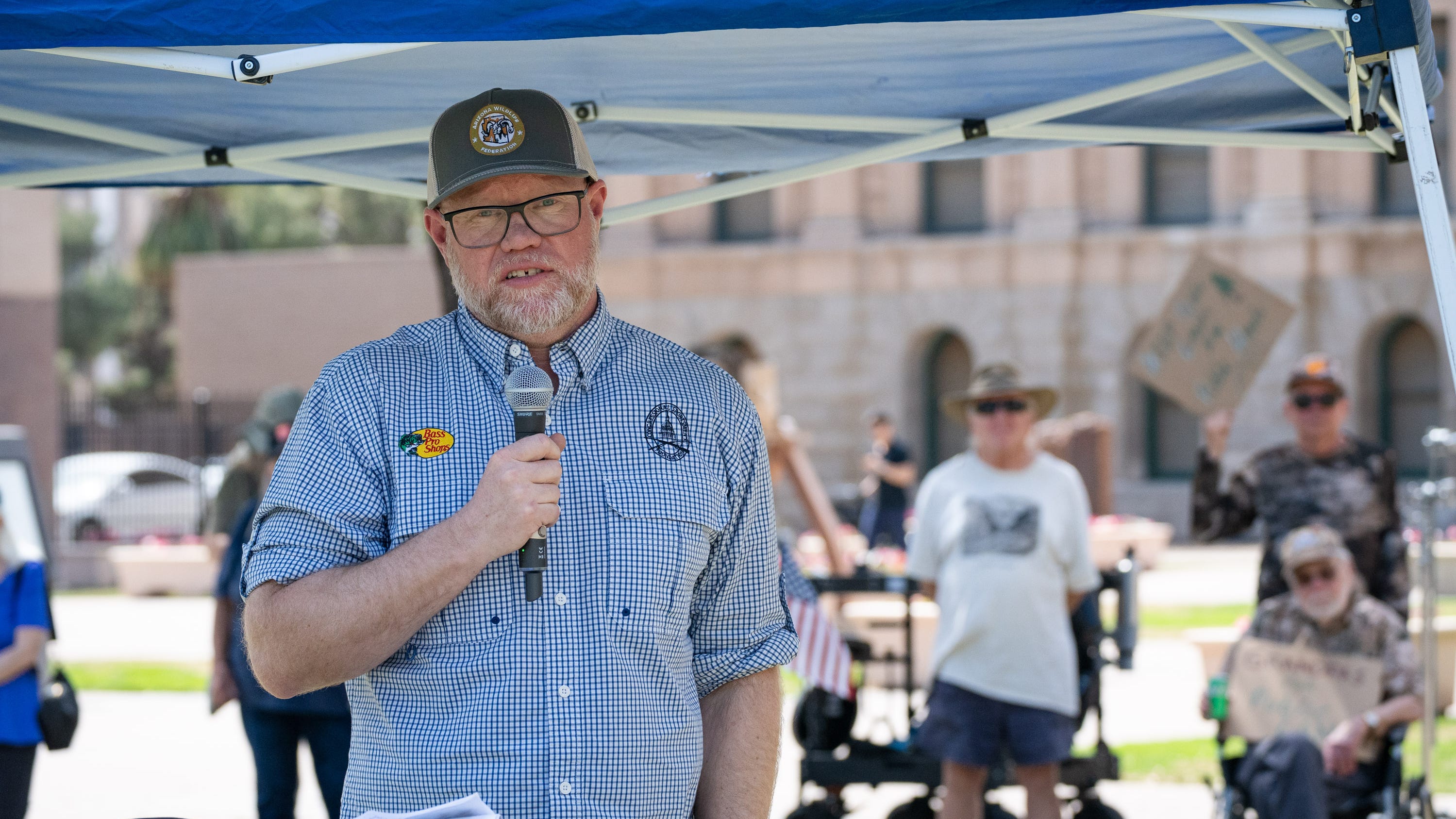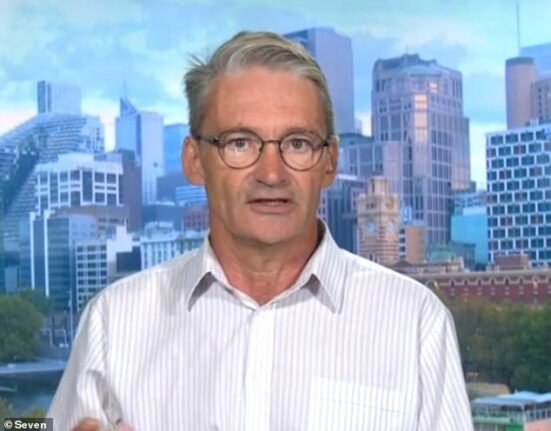
Arizonans worries about Trump plan to extract resources on public land
Residents worried about Trump’s calls to open public lands to resource extraction gathered March 27, 2025, at the Arizona Capitol to voice their grievances.
Conservation advocates raised concerns that Trump administration policies could undermine public land protections during the Society of Environmental Journalists’ 2025 conference in Tempe on April 26.
President Donald Trump’s recent executive orders to deregulate public lands, expand oil and gas leases, and target “underutilized” public lands threaten public land conservation efforts, panelists said. They added that firing thousands of federal employees dedicated to conservation makes matters worse.
“In the first 96 days of this administration, a lot of our network organizations feel large attacks on public lands,” said Chris Hill, CEO of the Conservation Lands Foundation, a representative of a nonprofit national network of community-led organizations working on natural land management.
“It started with the freezing of federal funds and moved into the firing of a lot of the folks that they worked to protect the lands,” she said.
How is Trump deregulating public lands?
Trump recently signed executive orders that would radically deregulate the management of public lands, including national monuments, parks, national forests, and land held by the U.S. Bureau of Land Management, said Michelle Nijhuis, an environmental author.
Such policy changes increase logging and oil and gas leasing on some federally owned lands, she added.
Also, Trump announced an initiative to inventory “underutilized public lands” and sell or lease them to states, cities, and other entities for development, Nijhuis said.
She said about 5,700 employees (6% of the workforce) of the Department of Agriculture were fired or bought out, along with nearly 3,000 employees (4% of the workforce) at the Department of the Interior.
Nijhuis said such mass reductions in the federal workforce make it harder for the agencies to work with other government organizations, including tribal governments, to be good stewards of that land. The federal government is legally obligated to partner with tribal governments.
Why deregulation and layoffs concern environmentalists and Native Americans
Hill, CEO of the Conservation Lands Foundation, is concerned that public lands, recognized as heritage sites, are being sold using the excuses of a housing crisis and energy demand. She said there are better places to solve those problems than public lands.
Keegan King, founder and chief executive officer of the Native Land Institute, a New Mexico-based nonprofit that advocates for Native American rights, worried that his community lacks the resources to fight to protect public lands.
“In New Mexico, so many tribes don’t really have a whole lot of resources to fight,” he said, “but we’re ready to go on a lot of these fights.” He said they are developing strategies to bring more Indigenous people into the conservation movement.
All eyes on environmental laws
Jimmy Tobias, a reporter with Public Domain, an environmental news outlet, said the current administration is trying to undo the legal and administrative architecture born from the 20th-century environmental movement.
“Even if they got the regulations, the laws are still on the books, and I think it’s not going to be very easy for them to just, like, get rid of the laws,” he said.
Advocates said Trump executive orders that don’t comply with existing federal laws are likely to set up legal battles in court.
Still, Charlotte Overby, vice president of Conservation Field Programs at the Conservation Lands Foundation, is hopeful even with Republican lawmakers.
“Conservation is like a conservative value, and many of our very best and strongest modern laws were passed with conservative support,” she said. “There are some Western members of Congress who are Republican who will be pushed very hard to resist the sell-off and the disposal of these lands.”
Tufan Neupane is a graduate student of journalism at Arizona State University and is part of a student newsroom led by The Arizona Republic.
Coverage of the Society of Environmental Journalists conference is supported by Arizona State University’s Cronkite School of Journalism, the University of Arizona, the Nina Mason Pulliam Charitable Trust and the Arizona Media Association.
These stories are published open-source for other news outlets and organizations to share and republish, with credit and links to azcentral.com.







